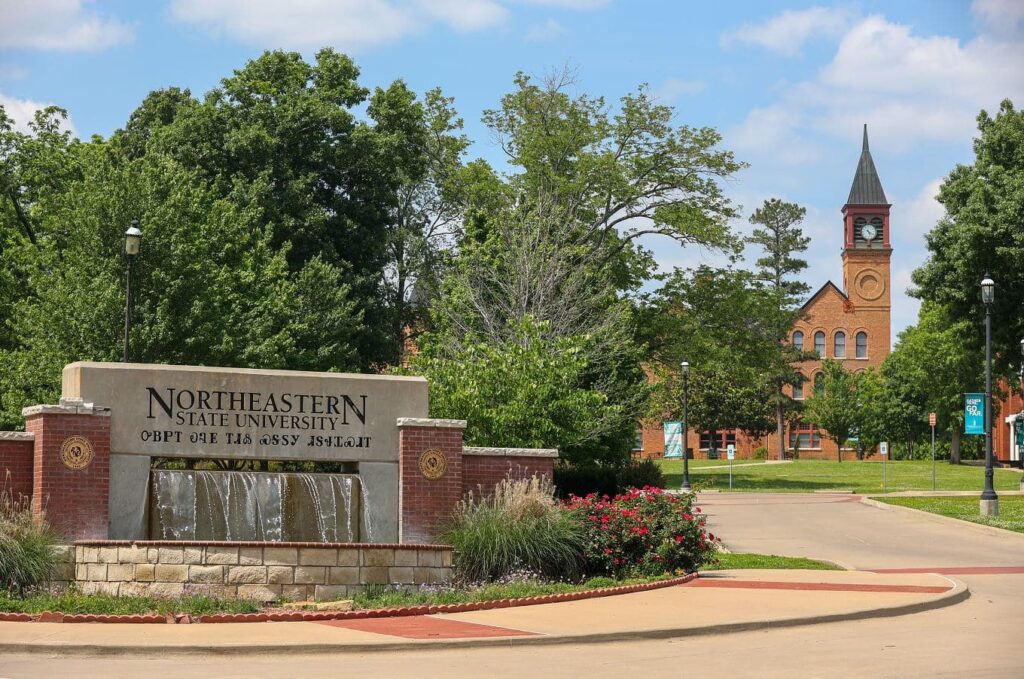John Dobberstein (editor)
While graduating with a degree in cybersecurity may be a good start for students, it may not necessarily be enough to enter the job market, even as U.S. employers desperately try to fill thousands of critical vacancies.
Northeastern State University has had a cybersecurity program for several years and has been sending graduates into cyber fields, but the university says it expects to do even better after learning it will receive a $1 million grant from Google.org to set up cybersecurity clinics in Tahlequah and Broken Arrow.
Northeastern State University is one of 15 new clinics planned to open at higher education institutions across the country in 2024, thanks to a collaboration between Google and the Cybersecurity Clinic Consortium.
In addition to the $1 million in funding from Google.org, the tech company is providing volunteer mentoring from Google employees at Northeastern State University, Google Titan security keys, and scholarships for a Google Career Certification in Cybersecurity..
Google.org will work with the Cybersecurity Clinic Consortium to provide funding, volunteers and in-kind support to establish the clinics.
The Google Cybersecurity Clinic Fund established the NSU Cybersecurity Clinic.
“This generous grant from Google will enable Northeastern University to produce job-ready cybersecurity professionals for one of Oklahoma's top 100 critical careers. This grant will not only provide essential immersive learning opportunities for our students, but it will also provide much-needed digital security for our local community and people across our state,” Northeastern University President Rodney Hanley said in a statement.
The new NSU Cybersecurity Clinic will provide NSU students with an effective, hands-on opportunity to learn cybersecurity and artificial intelligence (AI) skills while also helping protect vulnerable organizations and critical infrastructure.
According to the university, the Higher Education Cybersecurity Clinic provides free digital security services to under-resourced organizations, similar to how law and medical schools offer free community clinics.
According to the World Economic Forum's 2024 World Risk Report, cybersecurity remains one of the top 10 global risks for the next decade. There are currently about 450,000 cybersecurity-related jobs open in the U.S., including 4,191 open in Oklahoma. And demand for cyber professionals is projected to grow 32% by 2033.
Dr. Stacey White, a former police officer and assistant professor in NSU's School of Criminal Justice, became coordinator of the university's cybersecurity program several years ago and said she had always been interested in the program, especially because of its concentration of criminal justice, information systems and computer science.
But the funding will enable NSU to offer additional services to students, such as paid internships and additional training.
“I think it's good in terms of awareness and it will increase enrollment in the program, but that's not the primary motivation,” White said. “The primary motivation is to help the students who are currently enrolled.”
“We've found that in cybersecurity, a degree alone isn't always enough. Certifications and experience make a big difference in how marketable these students are.”
White said the Google.org program has been around for more than a decade, with grant funding growing nearly every year and benefits reaching all over the world. “This is better than reactionary behavior. This is trying to be proactive,” White said.
NSU learned firsthand the impact of cyberattacks last year when an attack took down the university's website and IT systems, an incident White said was unrelated to NSU's efforts to bolster its cyber programs.
“But these attacks are disturbing,” he said. “This grant was an opportunity to make our students more marketable in this field.”
On NSU's campuses in Broken Arrow and Tahlequah, cyber expert Professor Rene Moquin is working to build a cybersecurity lab for the program. Over the next year, NSU will be modifying the program's infrastructure, with the goal of starting on-site operations in fall 2025.
White said the lab will be “enhanced” so students can not only train but also run hands-on applications using virtual machines, “so they'll compete against each other and train each other that way.”
White is putting together an advisory board to guide improvements and changes to the program, and he hopes to involve local businesses in the training and hiring process. Clients who are open to remote work for students can come to the lab and do remote work, White said.
White also hopes to get local school districts, universities and technical schools involved in the program. “If we have high school grads who want to participate and they meet the requirements that the board sets out, we can bring their students into the clinic, and they can get certified and then they can go out there and do work for companies that hire us and get paid,” White said.


